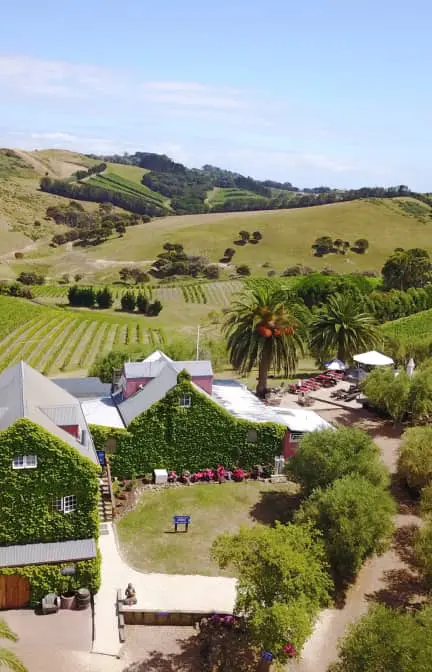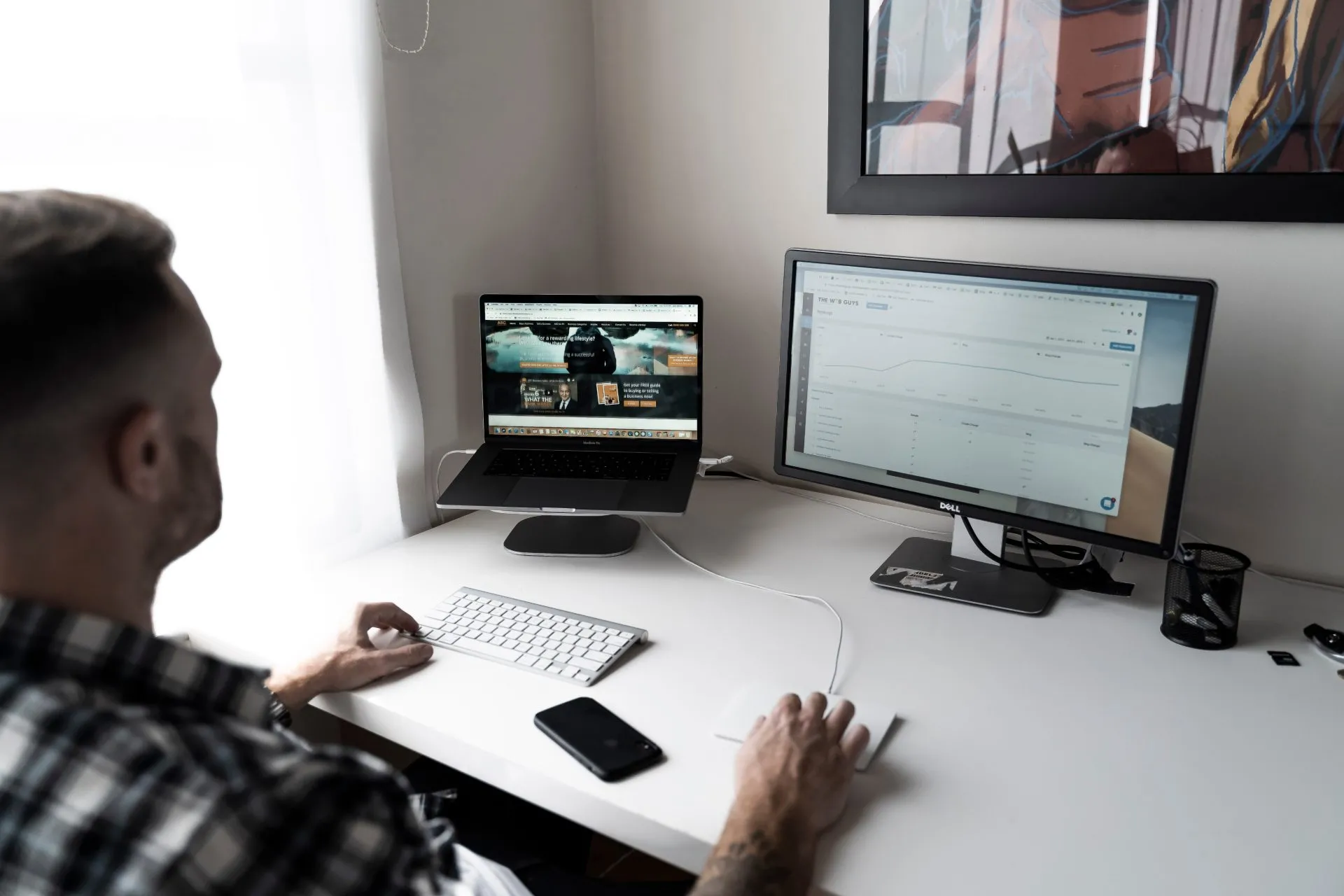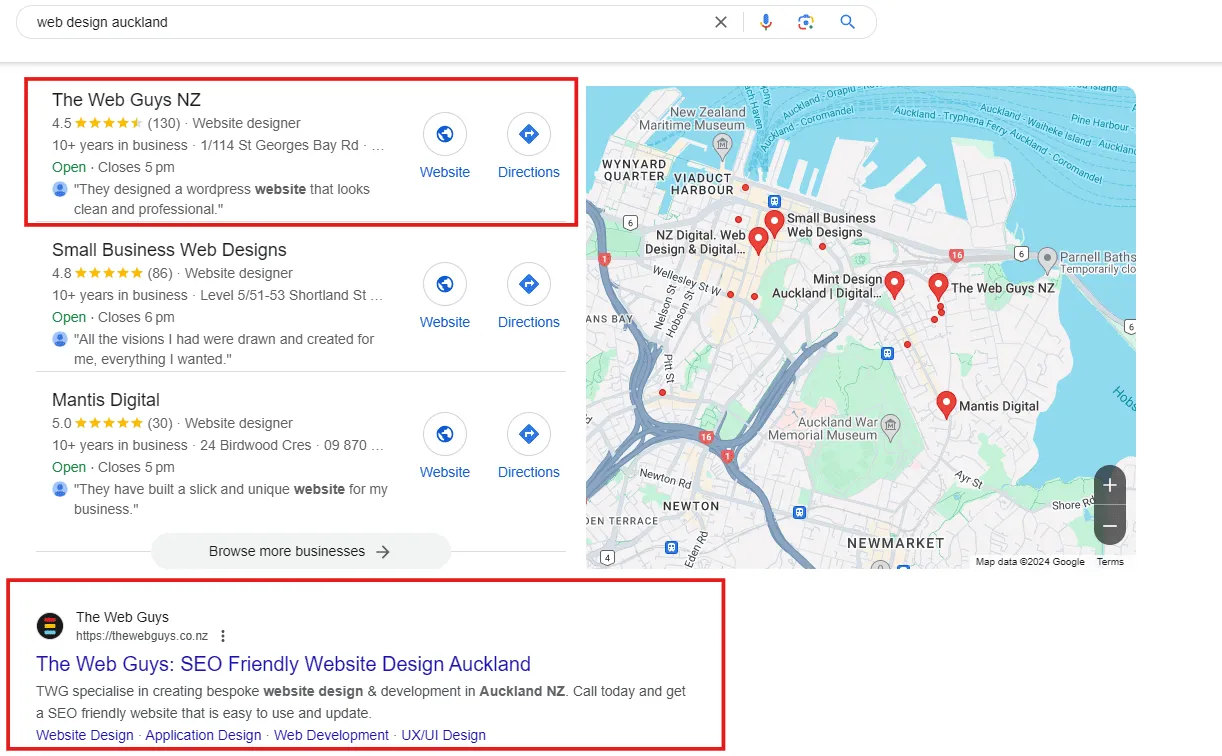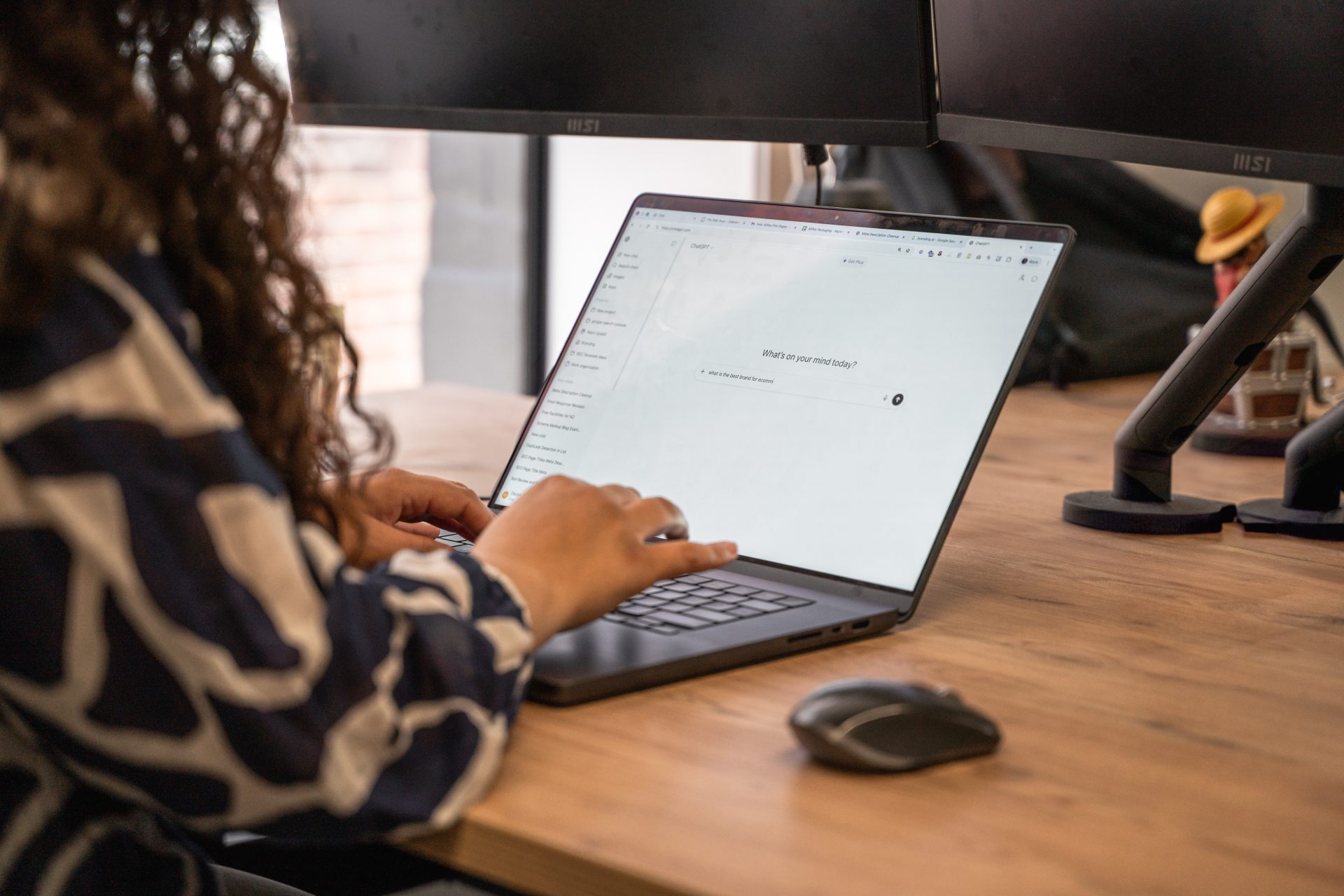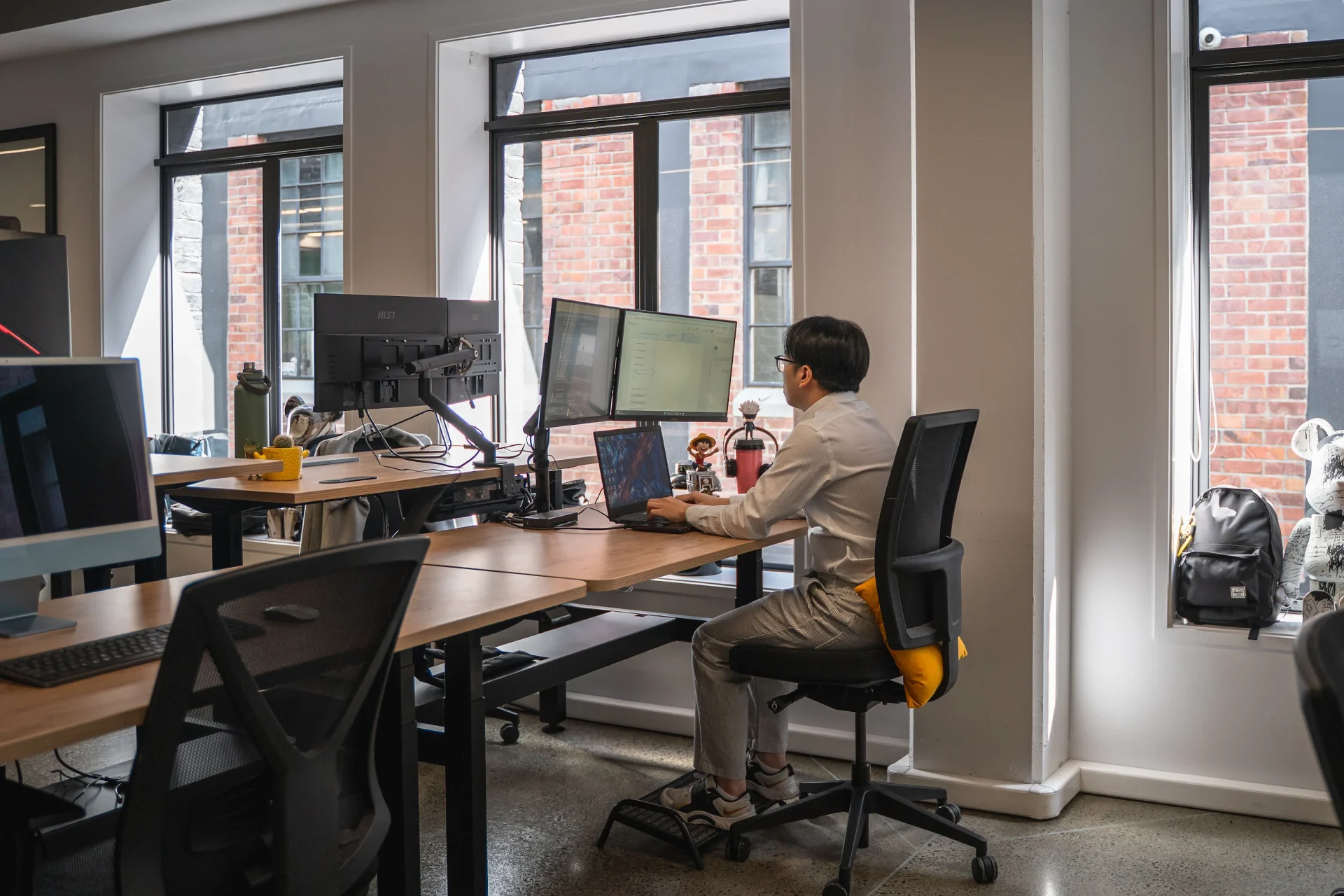No matter the size of your business, your search engine optimisation (SEO) strategy can spell the difference between success and failure. Over the last decade or so, most small business owners have been forced to diversify their skill sets. To stay ahead of the game, you now need to operate as an accountant, social media manager, and advertising expert, and you must offer your services and products in an accessible, streamlined online storefront.
Online Presence
Having an online presence is not negotiable if you want to succeed; for a start, it creates authenticity and trust. On top of having a professional web presence, your site needs to rank on the first page of any Google search for your services in your area. Think about it: when you hit your phone to shop for products and services, you choose from those businesses that appear first.
Growing your small business involves a multifaceted strategy and an ever-widening set of competencies, and we get that can feel exhausting. So, which promotional tasks should you be outsourcing so you can get on with the job of giving your customers the best service? If you need local SEO for small business and you don’t even know what that means, then you may be at the bottom of a steep learning curve that you simply don’t have time to climb.
Let’s unfold it: what is local SEO for small business and how can you make it work for you? Read on as we explore how Google ranks websites and discover some local SEO strategies for growing your New Zealand business.
What is Local SEO for Small Business?
Put simply, properly applied, it’s a way to ensure that when customers are searching online for what you provide in your area, your business is visible. That means it appears high up in search rankings – ideally on the first page of Google search results. When local searchers are looking for you, a Map Pack will pop up highlighting three local businesses. Ideally, that’s where your business needs to feature.
While the definition may be simple, a strategic approach to local SEO for small business is actually quite complex; it requires expert knowledge, specialist tools, and vigilance.
How does Google decide who ranks?
In a broader sense, SEO starts with the quality of your website. Google automatically scans your site and measures your authority and value based on hundreds of different factors to determine where you should rank. The content on your website is ‘crawled’ by bots, and then sites are indexed according to their value and stored in a server. When customers type your area, plus your product or service, into the search bar, those sites which have been deemed worthy to rank are presented as the top ranking sites for your service in your area.
To ensure you are paying for quality local SEO services, your digital marketing team should only be following ‘‘white-hat’ SEO practices. This means that they adhere to the five Google keyword ranking signals. These are meaning, relevance, quality, useability, and context.
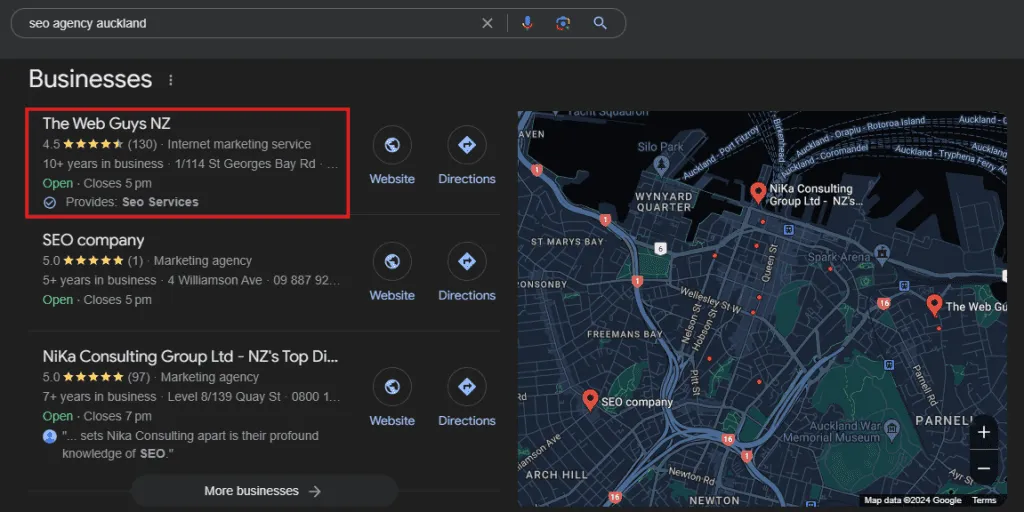
Screenshot from Google.co.nz at 3:00 pm in Chrome incognito mode
Dynamic Local SEO Strategies Yield Results
Of course, this is a dynamic process, so you need to have an ongoing local SEO strategy that updates your website continuously if you want to retain good rankings; it’s not a set-and-forget discipline. Your website needs to feature quality content, include the latest ranking keywords for your industry and be kept up-to-date if you want to achieve and maintain good rankings. You need to stay relevant and provide the best answer when customers search for your product, and the more popular your site is, well, the more popular it becomes.
How do I rank for local SEO?
In addition to ensuring that your website is properly optimised overall, you need to specifically target local searchers by competing for organic traffic. There are a number of factors that improve local search rankings, here, we will highlight a few.
Relevant Local Domain Name
If possible, it pays to approach your local SEO rankings at the planning stage when you are creating your website, in some cases you may need to totally rethink your current domain. Your digital marketing team can help you select the best domain for local SEO rankings. For example, in a broader geographic sense, if you are selling “New Zealand honey” then your domain should be .co.nz.
Google Business Profile
In late 2021, Google announced that Google My Business would be rebranded as Google Business Profile. Starting with a strong GBP is essential; you could even take a step back from here and make sure that your business name itself contains a local keyword search phrase in its entirety – or even partially. If people in your area are searching for “driving lessons Auckland”, and your business is titled Davidsons Auckland Driving Lessons, Google may favour you from the outset.
Optimising your GBP listing for local traffic involves a keyword-optimised description, choosing the correct categories and displaying a map that provides your exact geo-location which links to an optimised website URL. Your GBP is where customers can leave reviews. Replying to reviews is another good way to build trust and authenticity for your business. You need to add optimised images to your GBP, and you should check your listing frequently, as customers can also add content here.
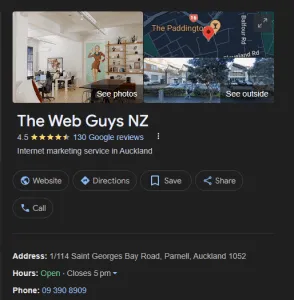
Localised Content
Adding local landing pages to your website is an essential tool to build local SEO for your small business. These landing pages operate as a type of local Home Page, so when customers ‘land’, they get an overview of your services and your unique selling proposition that is tailor-made to where they are located. This builds trust by creating a personalised set of information.
Link Building
Local landing pages are also a great way to feed traffic to other pages on your site, with links on location landing pages guiding customers to browse your main service pages, fill out forms, purchase items instantly, and read informative content. Your local landing pages will incorporate your address and phone number and will have unique headings that are optimised to local keywords. These pages will also have meta tags and titles optimised to promote your page in local search results and will follow other important SEO best practices.
Having multiple targeted location pages on your site can make a significant difference to your local SEO for small business. Importantly, these pages must contain unique content – you can’t just replicate the content and change the location name.
Building Local Citations
Citation building is when your business appears listed on other authoritative websites as a reputable business in the area. These citations can occur automatically or can be added manually. The websites may include Yellow Pages, local Chamber of Commerce websites, or industry business directories.
Citations are built organically on review sites like TripAdvisor or Trustpilot, and there are likely to be specific directories in your area, including Neighbourly and the NZSB Directory, where you can pay to have your URL and your name, address, and phone number (NAP) data listed. If you want to ensure your data is not getting shared on dodgy sites, it’s a good idea to pay your website’s digital marketing team to take care of this important visibility tool for you.
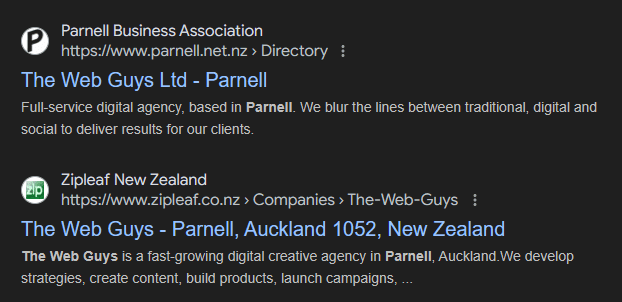
Building Local SEO for Your Small Business Starts Here
While we have relayed a few of the items here that you will need to address to build your local SEO ranking, it’s actually more complex than this. It requires a short and long term mindset, and if you want to rank, you will definitely need expert assistance.
At The Web Guys, we help small businesses across the country to improve and maintain their local SEO rankings. We know how to optimise your online presence, and when you are ready to commit, we can get you on the first page for Google search in your area. We can build you a stunning website that you will be proud to share and create a clever local SEO marketing strategy that works.
Get in touch now to start a conversation about growing your business by increasing local traffic to your website.
